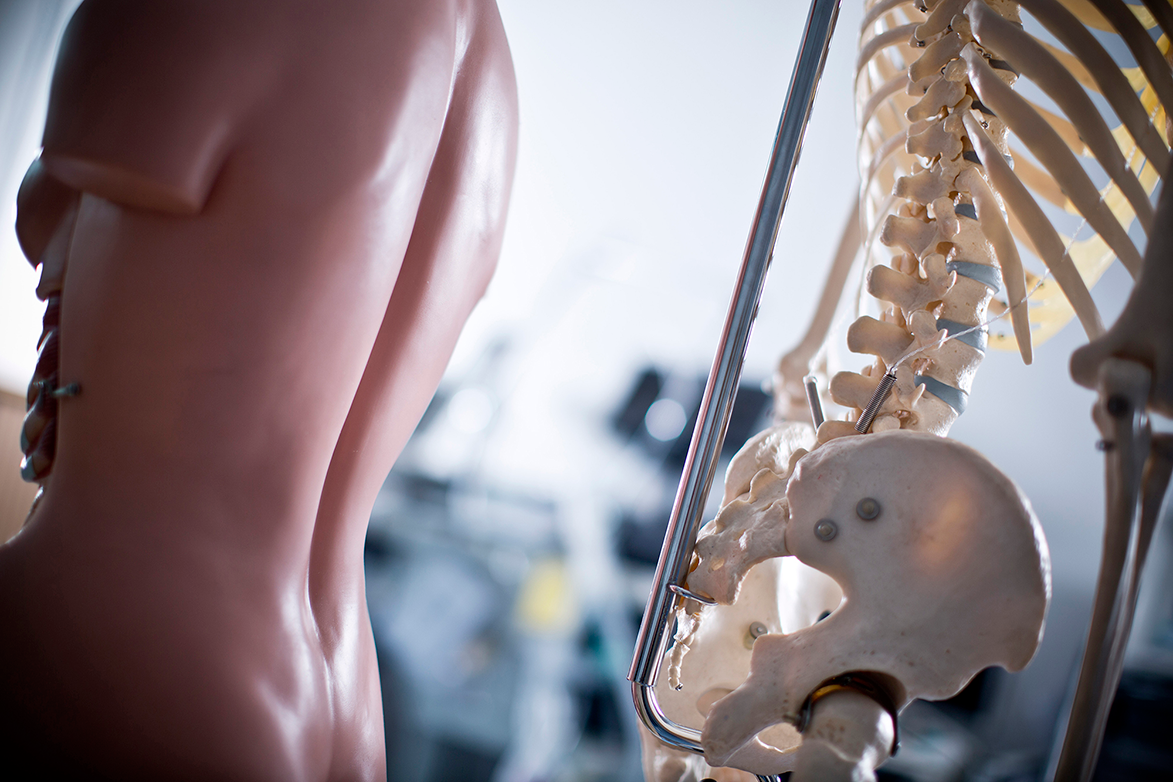
Recovery, rehabilitation and positive attitudes for back pain sufferers
Researchers based in the Centre for Applied Psychological and Health Research (CAPHR) at the University of Huddersfield have helped to bring about a major cultural shift in how back pain is viewed and treated. This has resulted in a new approach focusing on activity, positive attitudes and helping people stay at, or quickly get back to, work. The research draws on a biopsychosocial understanding of health and findings indicate that individuals, employers and healthcare practitioners need to work together in order to support the recovery and work participation of people living with back pain.
What was the problem?
Back pain is a leading cause of sickness absence in industrialised nations, often resulting in significant healthcare costs and benefit payments. It has considerable negative impacts on individuals, employers and society as a whole, leading to reduced quality of life, lost production, and an increased healthcare burden.
Benefits of this research
Research carried out through the Centre shows that these factors can be overcome by tackling the psychosocial factors preventing sufferers from returning to work and encouraging a positive shift in beliefs.
The research carried out by the Centre for Applied Psychological and Health Research (CAPHR) at The University of Huddersfield has altered perceptions about the nature and course of back pain and its relationship with physical stresses and work. By identifying the key psychosocial obstacles to returning to work it has been possible to help individuals, healthcare providers, and society to recognise these obstacles and move past them towards rehabilitation and recovery. The CAPHR is continuing research into back pain rehabilitation as there is still work to be done in ensuring that all the relevant services and individuals interact and communicate to form an effective support network.
What did we do?
Both the Department for Work and Pensions, the Health and Safety Executive, and the Association of British Insurers have commissioned research through the Centre to develop principles and practice for tackling work disability due to common health problems, including back pain. For the first time, it was shown that work has a positive effect on health and wellbeing, and that promoting work participation improves health outcomes and recovery.
What happened next?
Following on from this, and adding to the under-researched ‘social’ component of the biopsychosocial model, the Centre explored how spouses, partners and close family members influence recovery and work participation for those with back pain – this has been supported by grant awards from BackCare and the Bupa Foundation and includes a collaboration with the University of Groningen in the Netherlands. Findings have demonstrated how the negative beliefs of significant others can reinforce pessimistic attitudes around recovery, whereas positive beliefs can facilitate recovery and a faster return to work.